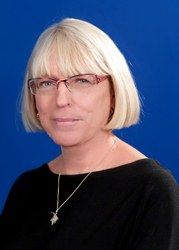Some 150 Chicago educators recently attended a talk where Dr. Patricia Hinchey, professor of education at Penn State Worthington Scranton, was featured speaker.
The event, titled "Teaching as Possibility: Becoming a Critical Educator in an Age of Compliance," was arranged by Concordia University of Chicago's Center for Policy and Social Justice and was part of its "Critical Conversations" series.
Dr. Hinchey was selected as speaker because students in the university's master's and doctoral programs are required to read two of her books on critical theory, an educational philosophy that proposes social justice as a primary educational goal. Educational reform issues are receiving intense attention in Chicago, where some 26,000 teachers and support staff mounted a 2012 strike that brought national attention to their outrage over current reform policies stressing high stakes testing and promoting privatization of public schools.
Hinchey's remarks centered on questions submitted earlier by members of a panel, who had oan pportunity to respond after she spoke. Panelists included professors, Chicago area administrators and teachers, and Concordia graduate students. Their questions centered on three issues: how to press for social justice education in a top-down reform environment increasingly limiting educators' autonomy; what specific, oppositional actions frustrated educators might take; and implications of the current reform environment for teacher education.
In responding to the question about what educators can realistically hope to accomplish in the current environment, Dr. Hinchey noted, "you have one choice: you can do something, or you can do nothing. Those are the only options. There is no neutrality here. If you do nothing at all, you are complicit."
She went on to urge audience members to educate themselves about current issues in order to be knowledgeable contributors to policy discussions; to identify and network with allies; to realize that an inch of progress is better than no progress; and, to remember that other civil rights issues, like women voting and school desegregation, also moved forward slowly as dogged promoters refused to stand by and allow injustice to continue without challenge.
Additional activities during Dr. Hinchey's time in Chicago included a visit to a masters class currently reading one of her books; a reception and dinner in her honor; and, an informal breakfast meeting of Concordia professors interested in her work.
